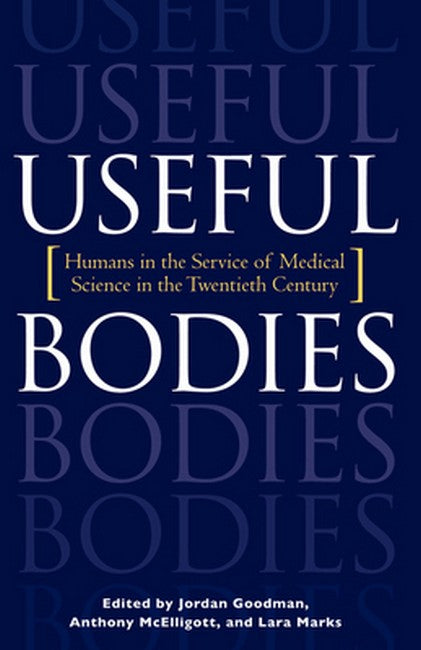Though notoriously associated with Germany, human experimentation in the name of science has been practiced in other countries, as well, both before and after the Nazi era. The use of unwitting or unwilling subjects in experiments designed to test the effects of radiation and disease on the human body emerged at the turn of the twentieth century, when the rise of the modern, coercive state and the professionalization of medical science converged.Useful Bodies explores the intersection of government power and medical knowledge in revealing studies of human experimentationgerm warfare and jaundice tests in Great Britain; radiation, malaria, and hepatitis experiments in the U.S.; and nuclear fallout trials in Australia. These examples of medical abuse illustrate the extent to which living human bodies have been ''useful'' to democratic states and emphasize the need for intense scrutiny and regulation to prevent future violations. ''Offers worthwhile lessons for contemporary researchers, scholars, and policy makers . . . [and] makes a strong case for adopting a broad perspective in the analysis of research ethics . . . Besides gaining a rich picture of past scientific practices, readers will be better equipped to monitor the continuing search of 'useful bodies' in our own era.''Rebecca Dresser, Nature Medicine''Each chapter is a startling case study that examines the nature and degree of the state's involvement in human experimentation . . . With contributions by leading historians of medicine, science, and public policy, Useful Bodies will be of interest to ethicists, bioethicists and those engaged in the formulation of public health and policy.''Issues in Law and Medicine''The well-documented essays cite a rich body of sources.''Susanna Cunningham, Journal of Clinical Investigation''This excellent volume treats human experimentation in Britain and the United States from 1920 to 1970.''Londa Schiebinger, American Historical Review''Using specific examples of biomedical research in the 20th century, this collection addresses the role and treatment of the body by biomedical researchers.''Choice''These articles make a significant contribution to our understanding of the role of the state in human subjects research.''Margot Iverson, Journal of the History of Biology''Although the chapters examine the tensions and moral ambiguities in research supported, sponsored, or performed by researchers in democratic states, the time period from which these cases are drawn makes a comparison with the research supported and performed by the Nazi government inevitable and disturbing. I highly recommend this book to those interested in the history and ethics of human experimentation.''Lainie Friedman Ross, Perspectives in Biology and Medicine''Well-written and meticulously researched, these essays offer the historical context to understand and evaluate human experimentation.''Karen Ross, Journal of the History of Medicine and Allied Sciences''With a refreshing lack of sensationalism, the essays offer fascinating details and perspectives on human experimentation conducted or funded by governments.''Norman M. Goldfarb, Journal of Clinical Research Best Practices''This volume is a rich, nuanced contribution to our continuing negotiation of the tensions between medical benefit, human subjects, knowledge production, and the power of the state. The case studies are often surprising and provocative. It presents an eye-opening picture of the ambiguity and moral complexity that continue to shape clinical interactions.''M. Susan Lindee, University of Pennsylvania

